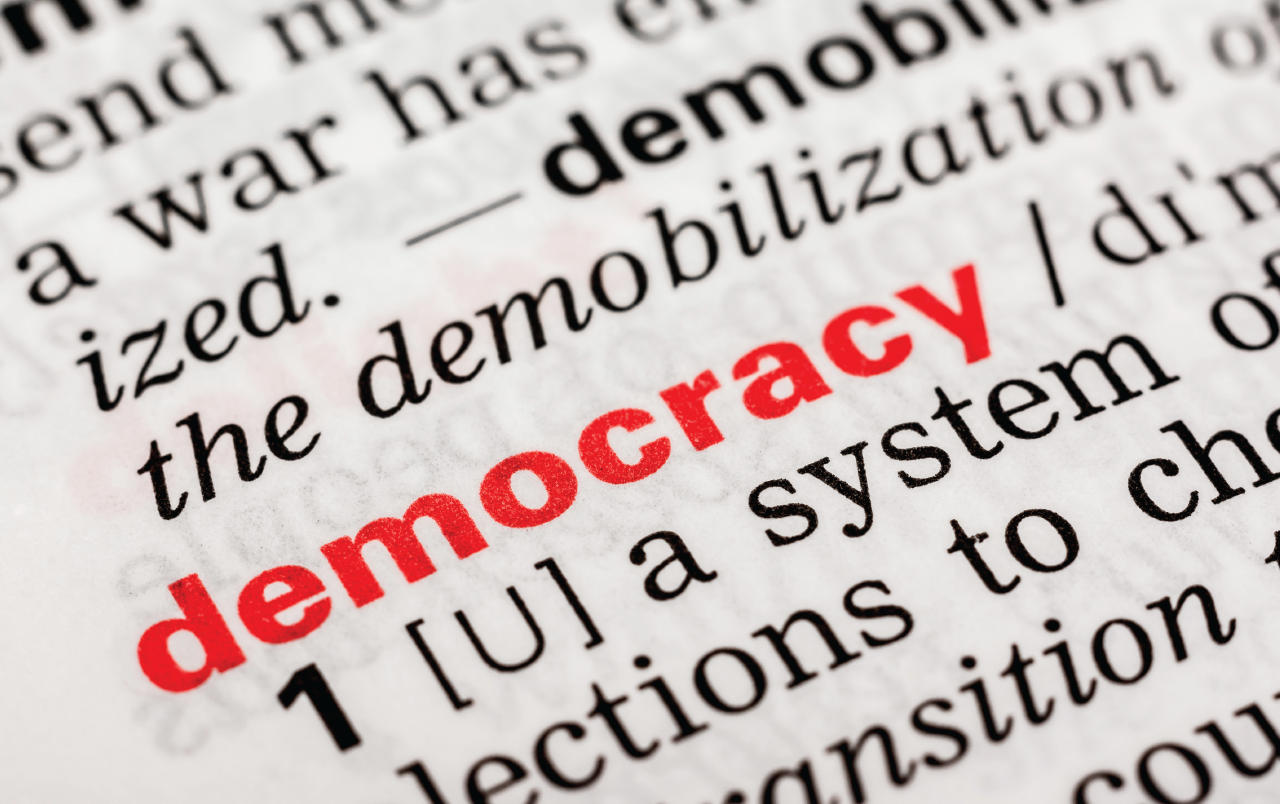In this article, it was highlighted that the effectiveness of external public development finance flows is currently at a turning…
A longer version of this article was originally posted in The Daily Star.
The weakness in our democratic system has to be worked on through inclusive policies and people’s participation. Having an improved quality of life should be a fundamental right.
The relationship between democracy and development has led to the fundamental question of whether development leads to democracy or vice versa. There are at least five strands of views on the relationship between democracy and development in the literature.
The first one states that countries need development first. Once they achieve development, people may have democracy. This argument assumes that the democratic process can become chaotic, which does not signify development. In such a circumstance, governments take decisions ignoring people’s opinions but for the benefit of people.
Second is the argument that democracy should precede development. It is based on the experience where economic and social well-being indicators have been better achieved in democracies versus non-democratic systems. Therefore, the priority of developing countries should be to promote democracy, which would, in turn, lead to economic development.
Third, the view that economic development leads to democracy is based on the idea that when a country reaches a higher income level, then they tend to move towards embracing democracy.
The fourth view is that economic development does not necessarily lead to democracy. Often authoritarian regimes show citizens that since they can achieve economic growth, there is no need for democracy.
Fifth is another view, the one that democracy has no role in development. It basically tells us that politics may influence the economic performance of countries. But the type of regime has no part in it. So, the impact of democracy on economic development is not known. In this view, democracy and development are two independent situations without any influence on each other.
It’s not all about the economy
While research drew the above conclusions from the experiences of several regime types and their economic performances, these studies are flawed on three grounds.
First, the dataset used in these studies, which do a cross-country regression analysis to see the linkages between the two concepts, suffer from inadequacy. There have been several attempts to improve the quality of data across the world and a global call for data quality. Yet, there is little progress.
Second, while economic progress can be measured in quantitative terms relatively easily, political performance is a qualitative term. Hence, assigning numbers or weights to it for statistical analysis will always be challenging.
Third, the existing research often uses growth and development synonymously, ignoring the fundamental difference between these two concepts of economic performance. While economic growth is only a measure of the annual growth rate in the gross domestic product (GDP) of a country, development has a more significant connotation. Its sphere includes social and political indicators. Growth is a narrow concept that only captures the rise in income, while development entails a deeper meaning of progress. It is about all-encompassing advancement in human life. Therefore, a country may not necessarily develop even with a high growth rate. Only income-based progress looks at income per capita but ignores human beings’ quality of life and non-economic requirements. Growth-based progress also ignores inequality, distributive justice, and inclusivity. It denies the basic rights of a human being. Even if some countries are progressing economically, their inequality is also increasing, while their performance on other life aspects is deteriorating.
Democracy and the individual
Ideally, in a democratic environment, there are better opportunities for economic, social and cultural growth compared to within an authoritarian state. Democracy is also crucial for sustainable development in the long run. By democracy, we do not merely mean expressing individual choices by participating in the electoral process. It is not only about voting to elect a government in a country; it is about a participatory process in all government development efforts. It is about social and institutional transformation, considering personal growth and welfare as integral. Having an improved quality of life that is valued and respected should be a basic right.
There is also a tendency amongst many of us to cite examples of undemocratic countries as stories of economic success, see China. Singapore is also mentioned as another glaring example of financial success that was possible in an authoritarian system. However, the limitations of those systems are real. Corruption of Chinese high-level party officials and inequality of distribution is the norm. These two countries are criticised for suppressing people’s voices and freedom worldwide.
But democracy is also about getting the opportunity to determine individual interests. Transparency in resource allocation and utilisation, resource management accountability, and protection of human rights, including freedom of expression, are all components of the democratic package and essential for inclusive development. Hence, the true meaning of democracy should lie in empowering people through enabling their participation in the electoral and development process. Freedom through free and fair democracy is a defining component of a long-lasting development process. The journey of the highly developed and strong democratic countries vindicates this experience.
In the 21st century, the argument in favour of ignoring democracy for economic development is weak. Development without democracy is not possible. Democracy is a component of development. Both are essential pre-conditions for human welfare. Creating a dichotomy between democracy and development is misleading. They are inextricably linked with each other.


